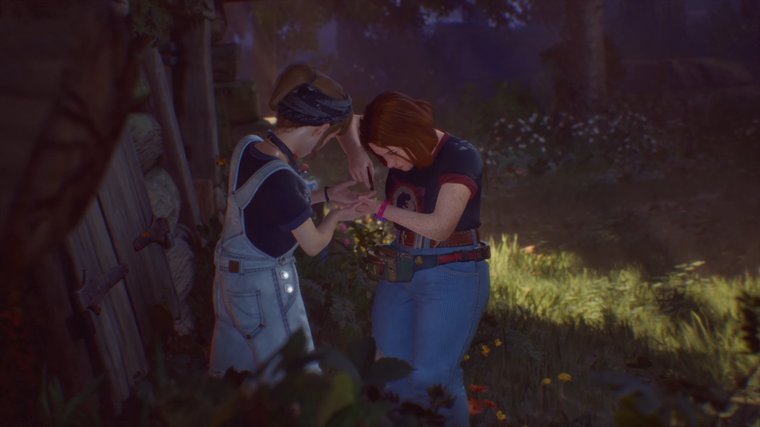Tabla de contenidos
Picture this: you’re storming a dungeon, dodging fireballs and collecting loot, and suddenly, your AI companion winks at you after a clever quip. It’s weirdly… heartwarming. That little spark of romance doesn’t just add dialogue—it transforms the whole adventure. Love stories in games aren’t just fluff; they make worlds feel alive.
The Magic Behind Emotional Engagement
Romance options in games aren’t a gimmick—they’re a way to connect with characters on a deeper level. When you see your choices influencing someone’s feelings, suddenly, every decision feels weighty. Will you save the village, or flirt with the rogue you secretly like? This is where the best games with romance options shine. They aren’t just quests with a heart icon—they’re opportunities to inject human complexity into fantasy worlds.
Think of it like crafting your ultimate loadout. A sword and shield combo is great for combat, but pairing it with witty banter and romantic tension gives your experience extra stats: immersion +10, attachment +5. And let’s be honest, no XP boost feels quite as satisfying as earning a character’s trust (or love) after a hard boss fight.
Choices That Actually Matter
Games with romance mechanics often force you to juggle priorities. Do you chase the main questline, or linger for late-night conversations in a candle-lit tavern? These interactions make worlds believable, much like how your favourite TV drama thrives on character dynamics.
• Dynamic dialogue: Your words matter. Flirt, tease, or support—every option shapes relationships.
• Branching paths: Love choices often lead to unique quests, cutscenes, or even endings.
• Emotional stakes: Losing a partner due to a misstep hits harder than any in-game trap.
It’s not just about heartstrings; it’s strategy. Picking the wrong dialogue choice might mean losing a companion at a critical dungeon raid. Miss a cue, and suddenly that boss fight feels twice as brutal without your favourite NPC by your side.
Why Gamers Crave Emotional Depth
The appeal isn’t just for “romantic” players. Emotional depth adds layers to otherwise predictable gameplay loops. A world populated with complex relationships feels more lived-in. Your victories mean more, your defeats sting deeper, and even idle moments—like sitting by a campfire—become memorable.
Romance options can also spark replayability. Want to see what happens if you woo the enigmatic mage instead of the charming knight? That’s extra content without feeling like filler. It’s like finding a secret loot chest behind a side quest: satisfying, unexpected, and utterly delightful.
The Realism Factor
Games are simulations, but humans crave connection. Including love stories mirrors life’s unpredictability and emotional texture. It’s why even in epic fantasy or post-apocalyptic worlds, a shared smile, an awkward confession, or a heated argument makes everything feel real. Characters stop being NPCs and start feeling like people you genuinely care about.
In essence, romance mechanics humanise pixels. They transform code into relationships and side quests into experiences you remember long after logging off. And for those hunting these immersive moments, digital marketplaces like Eneba make discovering these story-rich titles seamless, offering variety and access without the usual store chaos.
Level Up Your Heart
So next time you load up a game, don’t just focus on stats or loot. Pay attention to the choices that tug at your emotions. Flirt, argue, support, or even break someone’s heart—it all counts. Because in the end, a world without emotional stakes is like grinding dailies without a reward: functional but flat.
Gaming isn’t just about beating the next boss—it’s about feeling alive in the worlds we explore. Love stories might seem optional, but they’re the invisible threads that make virtual worlds pulse with life. So grab your controller, open that dialogue wheel, and see where your heart—or your party’s—takes you.


